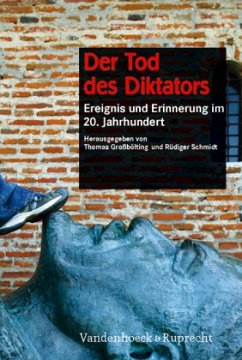"The King is dead, long live the King!" - this statement, expressing the very essence of political stability, was no longer valid for dictatorships in the 20th century. Last used in 1824, this cry was the attempt to defuse the situation surrounding the death of a monarch by showing that power could be transferred from one ruler to the next in line without delay. In the 20th century, however, this was no longer the case. The "Age of Extremes" was characterized by a multitude of political fractures and upheavals. The death of a powerful leader, especially a dictator, in the 20th century usually was accompanied by a political void: The dictator is dead, so what happens now? That is the modern version of the ancient French approach.
Bitte wählen Sie Ihr Anliegen aus.
Rechnungen
Retourenschein anfordern
Bestellstatus
Storno

